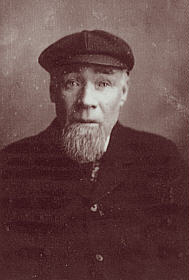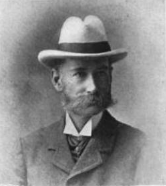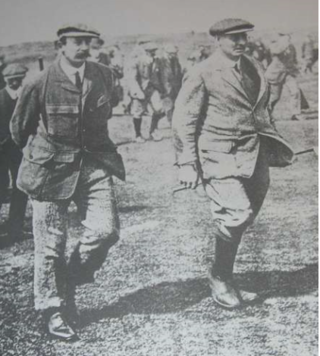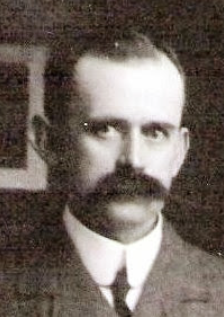
Jack William Nicklaus, nicknamed "the Golden Bear", is an American retired professional golfer and golf course designer. He is widely considered to be one of the greatest golfers of all time. He won 117 professional tournaments in his career. Over a quarter-century, he won a record 18 major championships, three more than second-placed Tiger Woods. Nicklaus focused on the major championships—the Masters Tournament, U.S. Open, Open Championship and PGA Championship—and played a selective schedule of regular PGA Tour events. He competed in 164 major tournaments, more than any other player, and finished with 73 PGA Tour victories, third behind Sam Snead (82) and Woods (82).

Darren Christopher Clarke, is a professional golfer from Northern Ireland who currently plays on the PGA Tour Champions and has previously played on the European Tour and PGA Tour. He has won 21 tournaments worldwide on a number of golf's main tours including the PGA Tour, European Tour, Japan Golf Tour and Sunshine Tour. His biggest victory came when he won the 2011 Open Championship at Royal St George's in England, his first major win after more than 20 years and 54 attempts.

Robert Ferguson was a Scottish professional golfer who was one of the top players from the mid-1860s into the 1880s. He won a hat-trick of consecutive titles at The Open Championship in 1880, 1881 and 1882.

Edward Rivers John Ray was a British professional golfer, one of the leading players of the first quarter of the 20th century. He won two major championships, the Open Championship in 1912 and the U.S. Open in 1920, and contended in many others. He was captain of the British team in the inaugural Ryder Cup, in 1927.
Mungo Park was a member of a famous family of Scottish golfers. He won the 1874 Open Championship held at Musselburgh Links.

Grégory Bourdy is a French professional golfer who competes on the European Tour.

Rafael Cabrera-Bello is a Spanish professional golfer who plays on the European Tour, where he has won four times. He has also played on the PGA Tour.

Russell Colin Knox is a Scottish professional golfer who plays on the PGA Tour.

Thomas Dunn was a golfer, golf club maker and prolific architect of many golf courses in the early 20th century. Less celebrated than his contemporary, Old Tom Morris, Dunn created many functional layouts and helped lead the development of courses away from the coast into inland heathland locations, notably many around London. In total, Dunn had four top-10 finishes in the Open Championship.
Valentine F. Fitzjohn was a Scottish professional golfer. He finished tied for second in the 1899 U.S. Open and finished tenth in 1900.
William Dow was a Scottish professional golfer. He had six top-10 finishes in the Open Championship. Dow placed third in both the 1861 and 1865 Open Championships.
William Doleman was a Scottish amateur golfer. Doleman placed sixth in the 1865 Open Championship. He placed fifth in the 1869 Open Championship and was third in the 1872 Open Championship. He is reputed to have been the first person to have played golf in Canada when he visited as a sailor in 1854.

Robert Pringle was a Scottish professional golfer who played in the late 19th century. Pringle had four top-10 finishes in The Open Championship. His best performance was second place in the 1877 Open Championship.
William Cosgrove was a Scottish professional golfer who played in the late 19th century. Cosgrove had one top-10 finish in The Open Championship. His best performance was a third place tie in the 1877 Open Championship.
David Ayton Sr. was a Scottish professional golfer who played in the late 19th century. He had three top-10 finishes in the Open Championship. He was the son of William Ayton, one of the eleven founders of St Andrews Golf Club in about 1843.

Peter Paxton was a Scottish professional golfer who played in the late 19th century. Paxton had three top-10 finishes in the Open Championship. He took second place in the 1880 Open Championship five shots behind winner Bob Ferguson. Paxton was an expert club and ball maker. His golf ball inventions included the Bramble and Sirdar models, the former being the ball of choice for Harry Vardon at one time. Paxton was also the designer of a number of golf courses, with Coventry Golf Club and East Berkshire Golf Club being among those designs.

Tom Williamson was an English professional golfer who played in the early 20th century. Williamson finished in the top 10 in the Open Championship on six occasions and played in it over fifty years. His best performance came in the 1914 Open Championship when he tied for fourth place, six shots behind the winner. With Harry Vardon he won the 1913 Sphere and Tatler Foursomes Tournament by a convincing 7 & 5 margin. He was Captain of England in 1909 and represented England between 1904 and 1913. He won the Midland Professional Championship when it was first held in 1897 and a further six times. He was a renowned club maker and was the first to number clubs in 1906. He experimented with score cards placing a course plan on the reverse side in 1930. He designed sixty courses, the majority in the East Midlands. He was a founder member of the PGA and became its Captain in 1928. He had a good reputation as a teacher and taught Enid Wilson who won the English Ladies Championship three times. He was known as a modest man of integrity.

Frederick Mackenzie was a Scottish golfer of the early 20th century. He had a successful amateur career, winning the Dundee Evening Telegraph Cup three times between 1899 and 1903. He then had a brief spell as a professional in America, during which time he finished third in the 1904 U.S. Open. On his return to Scotland he gave up professional golf but was unable to get reinstated as an amateur. He played local competitions but was ineligible for the more important amateur tournaments.

John Hunter was a Scottish professional golfer who played in the late 19th century and early 20th century. Hunter finished in eighth place in the 1898 Open Championship. He won the first Scottish Professional Championship at Panmure Golf Club in 1907 with a score of 304 over four rounds, which included a record round of 71 in the third round.

Robert Thomson was a Scottish professional golfer who played in the late 19th century into the early 20th century. Thomson had two career top-10 finishes in the Open Championship. In 1903 he finished tied for 6th place and in 1905 finished 7th.










